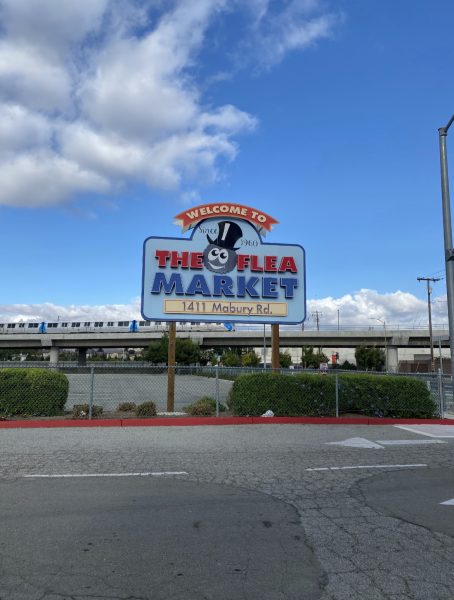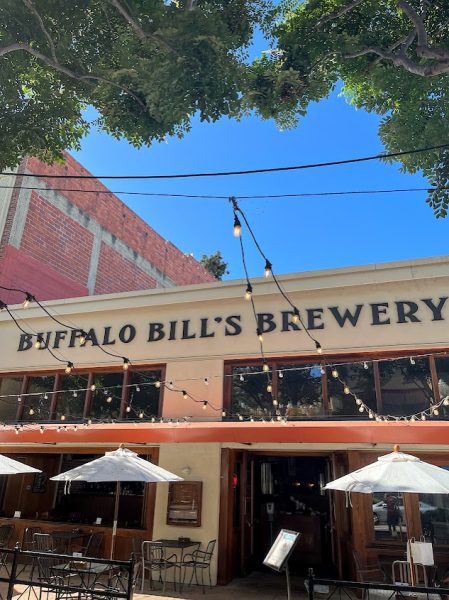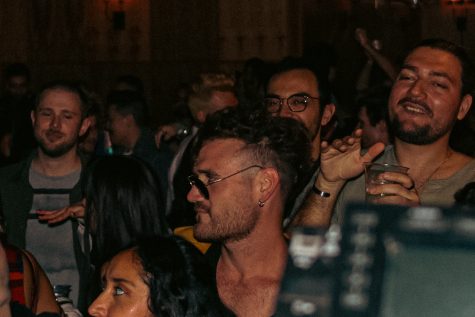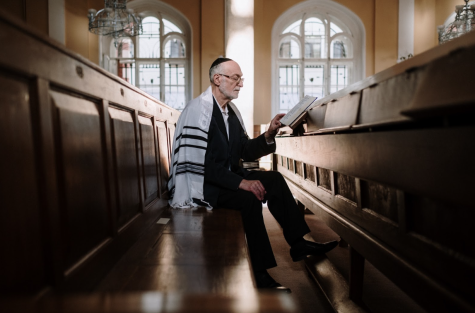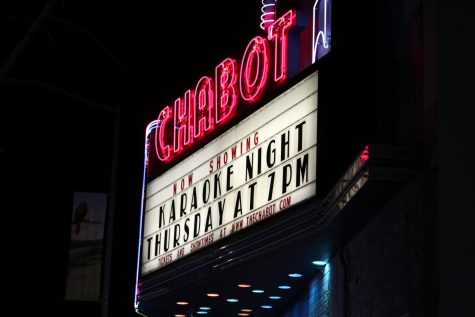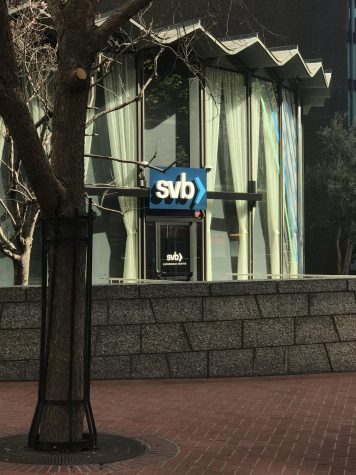Occupy Members Commemorate Oakland’s 2nd Anniversary
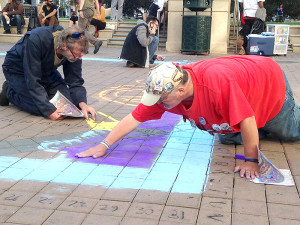
an intricate chalk design resembling a current occupy
flyer.
Oakland’s Frank Ogawa Plaza, unofficially renamed Oscar Grant Plaza, was the site for Occupy Oakland’s second anniversary Friday as members commemorated the movement and examined their next plan of action.
While previous actions at Oscar Grant Plaza have attracted hundreds and resulted in riots and violent protests, this gathering was one of nonviolence, very minimal protests and few attendees.
“Some people are done with Occupy,” said Ramon, a member of Occupy and protester since his high school years at Hayward High. He was an anti-war protester as well as a supporter of those in the LGBTQ community.
“There are a lot of movements that represent people already and Occupy was acting like it was the main movement and I think that shied some people away. Some people I know have pushed their own movements separate from Occupy and don’t necessarily follow Occupy itself, but the struggle,” Ramon said.
Members of Occupy said they came together two years ago to form a community group that fights for a just and equitable future for all. One of these movements that developed from the Occupy movement is the protest for better human rights standards for the more than 30,000 prisoners who initiated a 60-day hunger strike on July 8.
Prisoners have called for five basic demands, the site stated according to Prisoner Hunger Strike Solidarity website. These demands include; to end group punishment and administrative abuse, abolish the debriefing policy and modify active and inactive gang status criteria, to comply with the U.S. Commission on Safety and Abuse in America’s prisons 2006 recommendations regarding an end to long-term solitary confinement, to provide adequate and nutritious food and to expand and provide constructive programming and privileges for indefinite secure housing unit status inmates.
Guest speaker, Sarah Shourd who was captured by the Iranian government and held in solitary confinement along with her now husband, Shane Bauer and a friend Josh Fattal in 2009, was there to speak and shared an emotionally moving account of her experiences both during confinement and after her release.
She was one of the UC Berkeley graduates charged with spying while hiking by the Iranian government in northern Iraq. She was detained in a 12 x 8 foot cell.
“After two months your mind sort of starts to change and you start to lose sight of who you are and the sense of time […] feeling your mind slowly deteriorating as the world shrinks smaller and smaller. At one point I lost total control and screamed in a violent panic,” said Shourd recalling her time in solitary confinement.
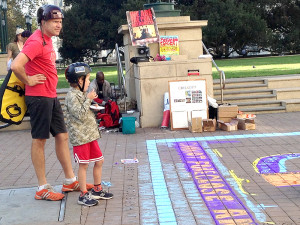
which featured speakers, music and food.
Most times in solitary confinement prisoners are subject to endless, tedious activities like having to read the same book day after day until they eventually throw the book against the wall, said Shourd, who was detained for 410 days. During that entire time she was only allowed two five-minute phone calls to family members.
Many people have asked about life after the ordeal and she said the aftermath lasts for a very long time.
“When I first came out it was difficult to be close to people, difficult to make eye contact and really hard to be in crowds. A lot of people don’t fully recognize how hard it is for prisoners when they come out,” added Shourd.
The prison hunger strike changed not only prisoners’ stories, but also the story of solitary confinement; it educated countless people around the world, said Shourd.
“What people are doing with the prisoner hunger strike is helping people on the inside change their story and helping the people that have come out of it reconstruct their story and start it again,” said Shourd. “It’s incredibly powerful, incredibly important work.”
Occupy was one of the first to stand in solidarity with the 2011 California Prisoners Hunger Strike,
said Dan Siegel, a movement lawyer working on cases involving Oscar Grant, Alan Blueford, and the Prisoners Hunger Strike, a protest against the indefinite solitary confinement of prisoners with gang affiliations that lasted from July 8 to Sept. 5 of this year.
It is the largest hunger strike in the history of California according to Amnesty International, with one prisoner committing suicide on July 22 while participating in the strike.
“Things are shifting in this country, we’ve changed the narrative,” said Shourd. “We can do that as individuals, we’ve done it collectively. We did it through Occupy Oakland and people are doing it through movements all around the world. The fact that they made prisons the forefront of this is extremely powerful.”
Some 200 people participated in the Occupy anniversary this year, but as the night drew on there were only a handful of people left. They gathered around a projector screen and watched cartoons and documentaries depicting the struggle of the Occupy movement in different areas of the world.
The night went on with documentaries depicting massive protests around the world while groups of 10 to 12 Oakland Police officers stood on each corner of the plaza attempting to monitor the crowd in case of retaliation; but no such tactics seemed necessary.
Some say the movement should now evolve into a more political arena; supporting policy ideas, running candidates for office, and putting pressure on politicians and corporations according to the Center for Constitutional Rights webpage. Others argue that the next step is to develop a specific list of demands, which presumably could further policy initiatives and protests.




